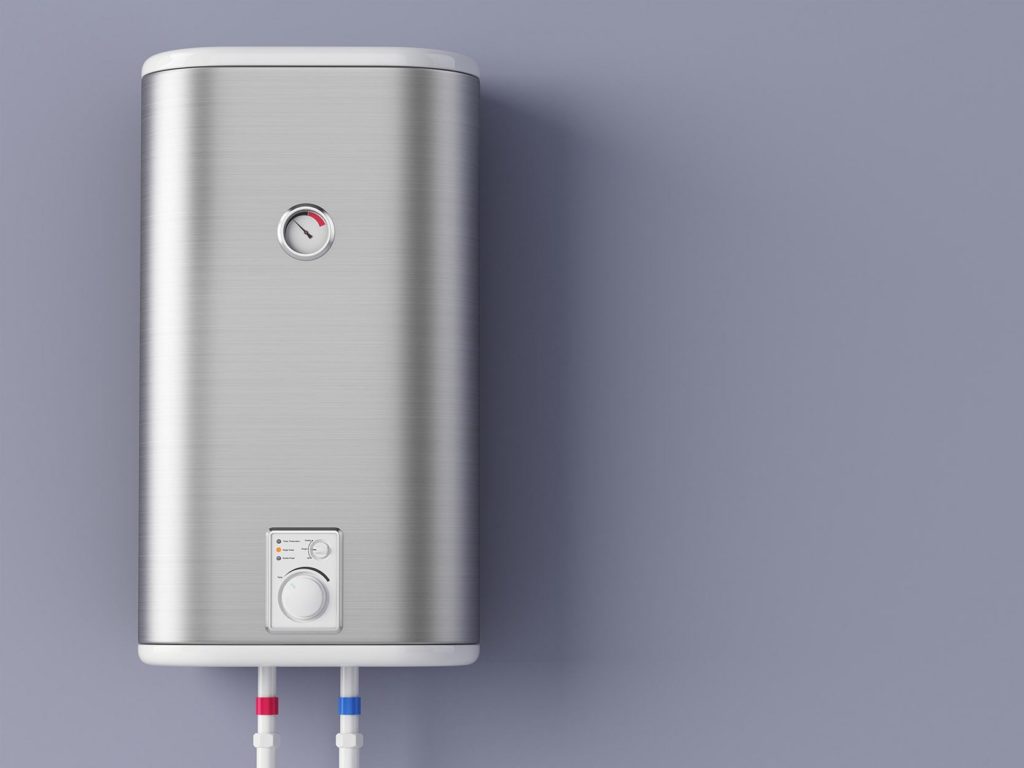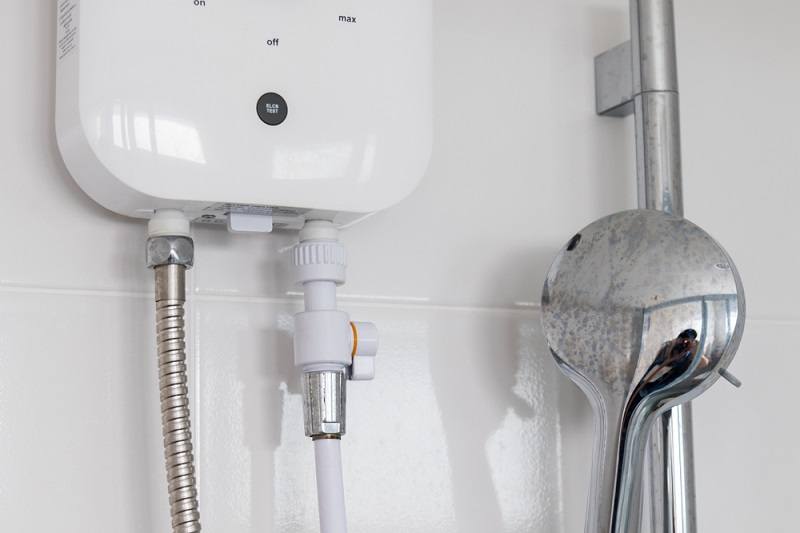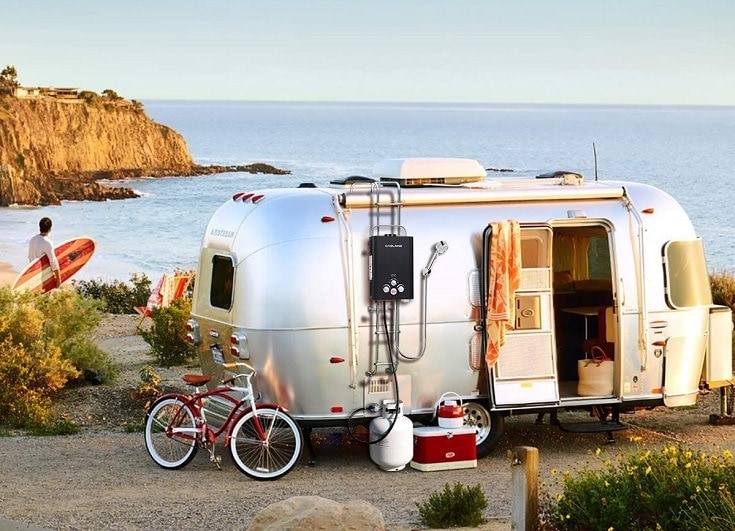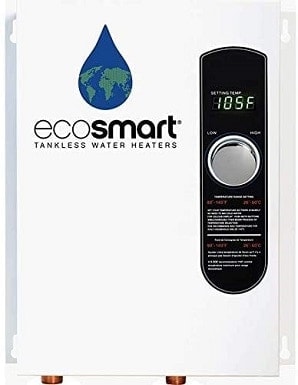Indoor vs Outdoor Tankless Water Heater: Pros & Cons
-
- Last updated:

Tankless water heaters are great for energy efficiency and “on-demand” hot water. But how do you know which is better: an indoor unit, or an outdoor one?
Here we’ll give a basic breakdown of the pros and cons of both indoor and outdoor tankless water heaters, so you’ll know exactly which type can benefit you best!
Indoor Tankless Water Heaters

Quick Rundown: Pros and Cons of Indoor Tankless Water Heaters
- Ideal for climates that get below freezing
- Adds value to new construction
- Gas heaters need proper ventilation
- Condensation and leaks can cause issues
- Noisy operation
Read on for an in-depth look at the pros and cons of indoor tankless heaters.
Upsides of an Indoor Tankless Water Heater
Best for cold weather
If you live in a climate that regularly sees below-freezing temperatures, an indoor tankless water heater is the way to go! You won’t need to worry about weather damage, and your heater will keep your showers piping hot all winter long.
Great for incorporating into new construction
The indoor variety is especially desirable when you’re building a new home. You can pick exactly the right spot, build in the proper ventilation and piping for a gas-powered unit, and add value to the property!
Downsides of an Indoor Tankless Water Heater
Carbon monoxide
Gas water heaters require ventilation in order to safely operate. If you are adding a tankless water heater to your home, there may be complications and expenses around setting up safe ventilation. And even with the right system, a leak in the piping can cause dangerous carbon monoxide in the home.
Condensation and leaks
Speaking of leaks, tankless water heaters are known to cause condensation. Unattended leaks or accumulation of water in the home can be a source of all kinds of problems including mold and bacteria growth or water damage.
Noisy machinery
If you’re a light sleeper, then think twice about where your indoor tankless water heater goes. The operation of these heaters can be surprisingly noisy, and special care should be taken to position them far from bedrooms if possible.
Outdoor Tankless Water Heaters

Quick Rundown: Pros and Cons of Outdoor Tankless Water Heaters
- Ideal for warmer climates
- Does not take up space indoors
- Keep the leaks, noisy operation, and harmful gases out of the home
- Power outages can cause damage
- Risk of theft and vandalism
Read on for a more detailed account of each of these pros and cons!
Upsides of an Outdoor Tankless Water Heater
Ideal for climates that do not get below freezing
If temperatures rarely, or never reach freezing in your neck of the woods then an outdoor tankless water heater may be just the ticket! This type is weatherproofed, but slightly susceptible to extreme cold.
No need to worry about storage space
You won’t have to give up any of your storage space to install an outdoor heater. Just pick the right spot outside, and installation is easy peasy.
No mess or carbon monoxide
The occasional leaks or condensation will pose no threat to your floors or walls. And with an outdoor unit, there’s no need to worry about dangerous build-ups of carbon monoxide!
Downsides of an Outdoor Tankless Water Heater
Power outages can compromise their weatherproofing
Winter power outages are particularly dangerous to this type of water heater. If one of these units loses power, there goes their freeze protection too! Outdoor tankless water heaters are best suited to warmer climates.
Theft and vandalism
If you live in an area that is at a high risk of theft, then an outdoor tankless water heater could pose a tempting to well-informed burglars. These units are full of valuable copper wiring and are relatively easy to remove from any mountings with simple tools. Keep them behind fences or hidden from view if possible.

A Glimpse of Some of Our Favorites
EcoSmart Indoor Tankless Water Heater

Camplux 5L Portable Outdoor Tankless Water Heater


Final Thoughts
In the long run, the main factor that you should keep in mind for indoor vs outdoor tankless water heaters is the climate in which you live.
Cold, windy climes with winter temperatures below freezing are prime for indoor units. But if you rarely get freezes, all the upsides of an outdoor tankless water heater can be yours!
After climate, factors include the location of the heater, whether you are installing it in a preexisting home or one that is yet to be built, and even the relative safety of your neighborhood.
Hopefully, this detailed look at the differences between the two units has helped you figure out exactly what will work best for all your water heating needs. Happy heating!
Featured Image Credit: Sashkin, Shutterstock
Contents


